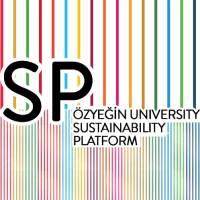Our Sustainability Working Clusters
Research at OzU is also carried out in a multidisciplinary manner within the framework of the United Nations' 17 Sustainable Development Goals. Research clusters are also formed to develop cooperation by creating a multidisciplinary research environment. The purpose of the clusters is to increase the relevant capacity and experience within OzU, as well as to increase interdisciplinary collaboration and understand research needs by creating an intra-university communication environment for academics working on the subject. To this end, Turkey's priorities in sustainability and OzU's strengths were brought together and clusters were formed as follows.
The main focus of this Cluster is economic growth. In this context, the priority SDGs in the Cluster are SDG 1 (End Poverty); SDG 2 (No Hunger); SDG 8 (Decent Work and Economic Growth); SDG 9 (Industry, Innovation and Infrastructure); and SDG 12 (Responsible Consumption and Production). In particular, the two-way and strong interaction between SDG 8 (Decent Work and Economic Growth), SDG 9 (Industry, Innovation and Infrastructure) and SDG 12 (Responsible Consumption and Production) should be underlined. These SDGs both affect and are affected by each other. Therefore, there is a high potential for multidisciplinary work here.
SDGs of secondary importance for this Cluster are SDG 3 (Qualified Education), SDG 7 (Accessible and Clean Energy) and SDG 10 (Reducing Inequalities).
The main focus of this Cluster is cities. Thus, SDG 11 (Sustainable Cities and Living Spaces) is the core SDG in this Cluster. It is also strongly influenced by SDG 11 (Sustainable Cities and Living Spaces), SDG 8 (Decent Work and Economic Growth) and SDG 9 (Industry, Innovation and Infrastructure). In this context, the impact of the projects and studies to be developed here on the cities should also be taken into consideration. The relationship of SDG 11 (Sustainable Cities and Living Spaces) with other SDGs is not only influencing them, but also influencing them. The main SDGs impacted by SDG 11 (Sustainable Cities and Living Spaces) are SDG 1 (End Poverty), SDG 3 (Healthy Individuals), SDG 5 (Gender Equality) and SDG 7 (Accessible and Clean Energy). It should not be ignored that the outputs of the studies to be carried out in this Cluster will also have effects in the context of poverty, health and gender equality.
The main focus of this Cluster is energy and sustainability, and its focus is on two main SDGs: SDG 7 (Accessible and Clean Energy) and SDG 13 (Climate Action). The strong bidirectional relationship between these two SDGs should be emphasized. Secondarily important SDGs are SDG 11 (Sustainable City and Living Spaces), SDG 12 (Responsible Consumption and Production), SDG 8 (Decent Work and Economic Growth) and SDG 9 (Industry, Innovation and Infrastructure). SDG 7 (Accessible and Clean Energy) is influenced by, rather than affecting, other SDGs. The main SDGs that have an impact on SDG 7 (Accessible and Clean Energy), SDG 1 (Eradicate Poverty), SDG 6 (Clean Water and Sanitation), SDG 13 (Climate Action), SDG 8 (Decent Work and Economic Growth), SDG 9 (Industry, Innovation and Infrastructure), SDG 11 (Sustainable City and Living Spaces), SDG 12 (Responsible Consumption and Production) and SDG 16 (Peace and Justice). Therefore, this Cluster has the potential to work multidisciplinary with many other Clusters.
The basis of the work in this Cluster is to reduce all kinds of inequality in society. In this context, SDG 10 (Reducing Inequalities), SDG 5 (Gender Equality) and SDG 16 (Peace and Justice) are the most important SDGs of this Cluster. SDG 5 (Gender Equality) is impacted by almost all other SDGs, particularly SDG 1 (End Poverty), SDG 8 (Decent Work and Economic Growth) and SDG 9 (Industry, Innovation and Infrastructure) . In addition, SDG 10 (Reducing Inequalities) strongly impacts SDG 1 (Eradication of Poverty) and SDG 3 (Gender Equality), higher than SDG 4 (Quality Education) and SDG 9 (Industry, Innovation and Infrastructure). extent affected. All these relationships make both SDG 3 (Quality Education), SDG 2 (No Hunger) (No Hunger) and SDG 1 (No Poverty) secondary SDGs in this cluster.















